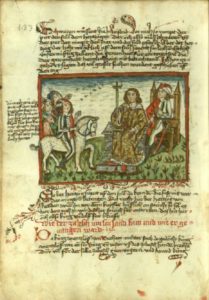THE AIM - KEEPING SLOVENIAN TRADITIONS, CULTURE and LANGUAGE ALIVE
For any nation, the culture, traditions and language are very important.
LOSS OF CULTURE, LANGUAGE AND TRADITIONS IS LOSS OF IDENTITY! (adapted from Khandu)
Keeping any traditions alive is important for teaching the next generations about a particular or shared past. Traditions are beliefs or behaviors that are passed down from one generation to the next within a certain national group.
For children, this is very important to positive emotional development. Traditions help to connect individuals to their family and place of origin, giving them a sense of security and continuity from one year to the next. Often, this includes religious traditions. Religious traditions include holidays, rituals and celebrations. Keeping religious traditions alive helps to maintain a sense of connection to the past, as many religious traditions have been alive for centuries.
Some believe that traditions are outdated or reflect a value system that is not applicable in today's world.
(from https://www.reference.com/world-view/important-keep-traditions-b3bf82c944e10534)
Cultural identity is the identity or feeling of belonging to a group. It is part of a person's self-conception and self-perception and is related to nationality, ethnicity, religion, social class, generation, locality or any kind of social group that has its own distinct culture.
(from https://www.google.com.au/?client=safari#q=loss+of+cultural+identity)
Slovenians in Australia are trying very hard to keep the Slovenian traditions, culture and the language.
From the early Slovenian migrants arriving, to recent times, the traditions, religious holidays, customs and language are kept alive.
From the distant past:
Some traditions, names and language survived since 7th Century
Knez Borut, died about 750; Knez Gorazd, d. 751; Hotimir, d. 769
THE OLDEST KNOWN WRITINGS IN SLOVENE - THE FREISING MANUSCRIPTS (BRIŽINSKI SPOMENIKI)
FIRST SLOVENIAN PRINTED BOOK in 1550
Slovenian Literature overview
Australian Slovenian Writers and Poets
Slovenian language schools were established in all states of Australia, except Northern Territory.
Slovenian social, cultural and sports associations were established in all states of Australia, except Northern Territory.
Slovenian religious centres were established in New South Wales, Victoria and South Australia, and Slovenian priests regularly visit Queensland, Western Australia and Tasmania.
Slovenians are happy people.
They love to sing, dance, enjoy traditional food and drink, celebrate religious and other holidays, collect traditional items, books, films.
And their homes are often decorated with abundance of flowers and fruit trees and bees, as they had them in the old country.
During the year, the following celebrations are important to Slovenians:
Australia Day - in gratitude to Australia for welcoming them
Pust - The Shrove Tuesday and the Carnival PUSTOVANJE
Easter and other religious celebrations, All Saints' Day, All Souls Day
May - Mothers' Day
June 26 - Slovenian Independence Day
During Winter months: Various Theme Dances: Grape picking, Chesnuts' Evening, Krvavice (blood sausage) lunch, Wine testing, Game nights,
Folk dancing, drama performances, cultural programs, recitals, choirs, art and craft exhibitions, cake competitions
September - Fathers' Day
October - bowling, air rifle shooting competitions, other sports
December 6 - St Nicholas - MIKLAVŽEVANJE, 25 - Christmas, 26 - Boxing Day with picnics and dances, 31 - New Years' Eve - Silvestrovanje
Draga Gelt
PHOTO GALLERY
For enlargement click on the photo
Democratic election of the Duke - stating that according to reserach by Dr J. Felicijan in The Genesis of the Contractual Theory and the Installation of the Dukes of Carinthia (Gosposvetsko polje, Koroška), Thomas Jefferson initialled a page in Bodin's Republic, describing the Slovenian ritual of the installation of the Dukes of Carinthia. The American Slovenian, Frank J. Lausche pointed that out in his speech on November 28, 1967 in American Parliament.
The Karantanci (Carinthian Slavs) maintained an independent state with the first Duke Valuk (L. Wallacus Dux), who, at the beginning of the seventh century lived with his small army (followers known as Kosezi) at Krnski grad (Karnburg, Austria). The installations continued for many years. The manuscript page below is from 1479-1482. (The Slovenians from the Earliest Times, by Draga Gelt, pp. 24-32;)
 The enthronement of Carinthian dukes was conducted in the Slovenian language in line with an established ritual. A page from the Manuscript of Clemens Specker, Austrian Chronicle of 95 Estates, 1479 - 1482, considered to be the oldest depiction of this event. © „Burgerbibliothek Bern, Cod. A 45, f. 66v“. (Permission granted September, 2016).
The enthronement of Carinthian dukes was conducted in the Slovenian language in line with an established ritual. A page from the Manuscript of Clemens Specker, Austrian Chronicle of 95 Estates, 1479 - 1482, considered to be the oldest depiction of this event. © „Burgerbibliothek Bern, Cod. A 45, f. 66v“. (Permission granted September, 2016).